DHS Secretary Says No to Medicaid Work Requirements
Pennsylvania will not seek federal permission to create a Medicaid work requirement, Department of Human Services Secretary Teresa Miller told a joint hearing of the State Senate Republican Policy Committee and Health and Human Services Committee this week.
 Miller conveyed what a news release described as
Miller conveyed what a news release described as
…the Wolf Administration’s firm opposition to work requirements for Medicaid recipients and the administration’s work to expand access to education and training programs and services to support employment for people served by DHS’ programs.
In her testimony, Miller explained that
Our goal is always to set policy and implement programs that empower Pennsylvanians to live fulfilling lives, support themselves and their families, contribute to our local economies, and build stronger communities. This is not about opposition to work. We want all people to achieve a better quality of life and not be caught in an intergenerational cycle of poverty. The Wolf Administration is not simply opposed to a work requirement; we are committed to increasing opportunities for meaningful work and providing the whole-person supports we contend are needed.
A Medicaid work requirement could affect the Medicaid eligibility of patients served by Pennsylvania’s safety-net hospitals.
Learn more about Secretary Miller’s testimony in this Department of Human Services news release.
 Under a plan adopted by the Pennsylvania Department of Human Services, which administers the state’s Medicaid program, that would change, with the state currently reviewing proposals from private vendors that would serve as brokers and assume this responsibility for large sections of the state: the eastern, central, and western parts of Pennsylvania.
Under a plan adopted by the Pennsylvania Department of Human Services, which administers the state’s Medicaid program, that would change, with the state currently reviewing proposals from private vendors that would serve as brokers and assume this responsibility for large sections of the state: the eastern, central, and western parts of Pennsylvania. According to a new study from the Georgetown University Health Policy Institute’s Center for Children and Families,
According to a new study from the Georgetown University Health Policy Institute’s Center for Children and Families, Included in this month’s edition are articles about:
Included in this month’s edition are articles about: Because the state’s borrowing against future tobacco settlement proceeds was never intended to result in a reduction of these payments in the future,
Because the state’s borrowing against future tobacco settlement proceeds was never intended to result in a reduction of these payments in the future,  Community HealthChoices is a new state program of managed long-term services and supports for Pennsylvanians over the age of 55 who are eligible for both Medicare and Medicaid.
Community HealthChoices is a new state program of managed long-term services and supports for Pennsylvanians over the age of 55 who are eligible for both Medicare and Medicaid. Pennsylvania Governor Tom Wolf has vetoed a bill that included a requirement that certain Medicaid recipients either work or search for work.
Pennsylvania Governor Tom Wolf has vetoed a bill that included a requirement that certain Medicaid recipients either work or search for work.